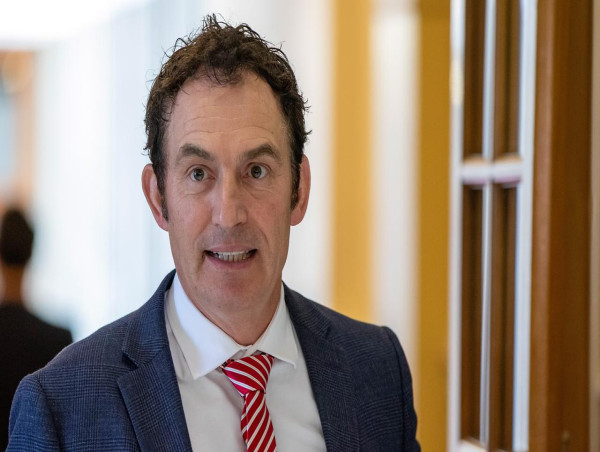New Zealand's police minister has resigned after revealing in a radio interview he asked the police commissioner to appeal a sentence.
Napier MP Stuart Nash has lost the police portfolio over the indiscretion, which he revealed on Newstalk ZB on Wednesday morning.
In a discussion about crime levels, Mr Nash also criticised the judiciary, suggesting judges should levy harsher sentences to gang-related crime.
"This bloke didn't have a licence, had illegal firearms, had illegal ammunition and had guns without a licence and he got home detention ... That was a terrible decision by the judge," Mr Nash said.
"I phoned up the police commissioner and said, 'Surely you're going to appeal this?'
"Judges need to read the room on this. Society is sick to death of these gang members creating havoc."
Prime Minister Chris Hipkins said while Mr Nash was not police minister at the time of the incident in 2021, he breached the cabinet manual for his lack of professionalism and for involving himself in a particular case.
Mr Hipkins said contacting the commissioner was "unwise" and Mr Nash's reflections on the judiciary were "an error of judgment".
"The minister has reflected on his actions and agrees it is no longer tenable for him to hold the police portfolio," Mr Hipkins said.
Mr Nash - ranked 11 in cabinet - retains the economic development, forestry, and oceans and fisheries portfolios.
The 55-year-old served as police minister in Labour's first term under Jacinda Ardern, and was moved out of the portfolio in 2020 before his shuffling back in when Mr Hipkins became leader.
Earlier on Wednesday, Mr Nash appeared not to understand the weight of his comments, downplaying their seriousness.
"I was chewing the fat with a guy who was a mate," he said, referring to commissioner Andy Coster.
Acting opposition leader Nicola Willis, standing in for COVID-struck leader Chris Luxon, called for Mr Nash's resignation and was pleased to learn of it.
"That was the right thing to do. The question we only now have to ask is why he was appointed to the role in the first place and how these errors of judgment occurred," she said.
"There are some principles in our democracy that all sides of parliament agree to, and we all agree that independence between ministers in the police is really important and I'm glad to have seen that upheld."



